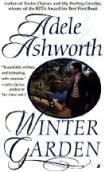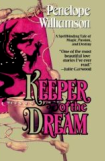Regency lingo
I got hooked on reading Regency Romances a couple of years ago, thanks to the wonderful Judith McNaught, and her unique talent to write stories that not only capture your imagination, but also worm themselves into your heart.
My only distraction, while reading historicals that is, is that I cannot understand most of the Regency lingo!!! So I find myself wondering: “Who was Friday faced? Is that good or bad?” “Gee, she weighs 7 stones. Ummm, let me get some rocks in my backyard and check exactly how much that is.” Or, “They’re going to a cotillion in a fortnight? Are they going to roast some exotic animal sometime in... er, the next century perhaps?”
So I decided to put together a list of the words that have given me the hardest time. Hope they are of help to all the Regency readers that visit us. *g* If you have any words/phrases you want to share and/or know the defintion to, post a comment and let us know.
Banns - A notice of an impending marriage given on three consecutive Sundays in one’s parish church. If no one objected to the match during this period, the marriage could procede.
Bluestocking - A lady interested in books, learning and scholarly pursuits.
Breeches - Short, close-fitting trousers that fastened just below the knees and were worn with stockings.
Chit - A saucy, forward girl.
Cicisbeo - A married lady’s admirer and escort.
Cotillion - A French dance for four or more couples with complicated steps and much changing of partners, led by one couple.
Dandy - A gentleman who is overly concerned with his dress and appearance.
Dowager - A term used to refer to the widow of a peer, e.g., the Dowager Countess of Essex. Generally the term is only used if the current holder of the title is married and therefore the female title (e.g., Countess of Essex) is in use.
Fop - A gentleman who dresses in excessively elaborate clothes and has affected manners.
Fortnight - A unit of time equal to two weeks; that is 14 days, or literally 14 nights.
Fribble - An effeminate fop.
Friday-faced - A dismal countenance. Friday was a day of abstinence.
Hessian boots - High boots coming to just below the knee that have tassels on the top.
Hoyden - A tomboy; a girl who behaves in a boisterous and unladylike manner.
Little Season - A smaller version of the Season, when London society attended a variety of entertainments. The Little Season took place from September to mid-November.
On dit - Gossip. From the French meaning “they say.”
Rake - A dissolute, profligate gentleman. One who indulges in vices such as drinking, gambling and especially sexual conquests.
Reticule - A purse usually made of cloth, often beaded, with a drawstring closure.
Season, the - The prime time for social events for high society in London. The Season began after Easter and lasted through June. A variety of entertainments were held during this time, and it was a way for ladies to meet potential mates.
Sennight - A unit of time equal to one week; that is 7 days, or literally 7 nights.
Stone (1) - 14 pounds.
Ton - The high society of the Regency period. It is pronounced like “tone,” and it comes from the French word ton meaning “tone, style.” A person or action described as good ton was accepted by Society. A person or action described as bad ton violated the unwritten rules of Society and was deemed unacceptable.
My only distraction, while reading historicals that is, is that I cannot understand most of the Regency lingo!!! So I find myself wondering: “Who was Friday faced? Is that good or bad?” “Gee, she weighs 7 stones. Ummm, let me get some rocks in my backyard and check exactly how much that is.” Or, “They’re going to a cotillion in a fortnight? Are they going to roast some exotic animal sometime in... er, the next century perhaps?”
So I decided to put together a list of the words that have given me the hardest time. Hope they are of help to all the Regency readers that visit us. *g* If you have any words/phrases you want to share and/or know the defintion to, post a comment and let us know.
Banns - A notice of an impending marriage given on three consecutive Sundays in one’s parish church. If no one objected to the match during this period, the marriage could procede.
Bluestocking - A lady interested in books, learning and scholarly pursuits.
Breeches - Short, close-fitting trousers that fastened just below the knees and were worn with stockings.
Chit - A saucy, forward girl.
Cicisbeo - A married lady’s admirer and escort.
Cotillion - A French dance for four or more couples with complicated steps and much changing of partners, led by one couple.
Dandy - A gentleman who is overly concerned with his dress and appearance.
Dowager - A term used to refer to the widow of a peer, e.g., the Dowager Countess of Essex. Generally the term is only used if the current holder of the title is married and therefore the female title (e.g., Countess of Essex) is in use.
Fop - A gentleman who dresses in excessively elaborate clothes and has affected manners.
Fortnight - A unit of time equal to two weeks; that is 14 days, or literally 14 nights.
Fribble - An effeminate fop.
Friday-faced - A dismal countenance. Friday was a day of abstinence.
Hessian boots - High boots coming to just below the knee that have tassels on the top.
Hoyden - A tomboy; a girl who behaves in a boisterous and unladylike manner.
Little Season - A smaller version of the Season, when London society attended a variety of entertainments. The Little Season took place from September to mid-November.
On dit - Gossip. From the French meaning “they say.”
Rake - A dissolute, profligate gentleman. One who indulges in vices such as drinking, gambling and especially sexual conquests.
Reticule - A purse usually made of cloth, often beaded, with a drawstring closure.
Season, the - The prime time for social events for high society in London. The Season began after Easter and lasted through June. A variety of entertainments were held during this time, and it was a way for ladies to meet potential mates.
Sennight - A unit of time equal to one week; that is 7 days, or literally 7 nights.
Stone (1) - 14 pounds.
Ton - The high society of the Regency period. It is pronounced like “tone,” and it comes from the French word ton meaning “tone, style.” A person or action described as good ton was accepted by Society. A person or action described as bad ton violated the unwritten rules of Society and was deemed unacceptable.
Labels: dame judith mcnaught, for the love of rakes and rogues, romance baby






















Very informative. Thanks Trollop. Just like to add this one:
accoucheur – an obstetrician; man who assists women in childbirth. These were male physicians, and it was considered more prestigious to have an accoucheur attend one’s childbirth rather than the traditional midwife.
1/11/2006 12:44:00 PM
That helps a lot, thanks. I'm pretty new to historicals so am still getting used to the language used.
Will have to keep this for a reference.
1/11/2006 05:55:00 PM
Post a comment
Home